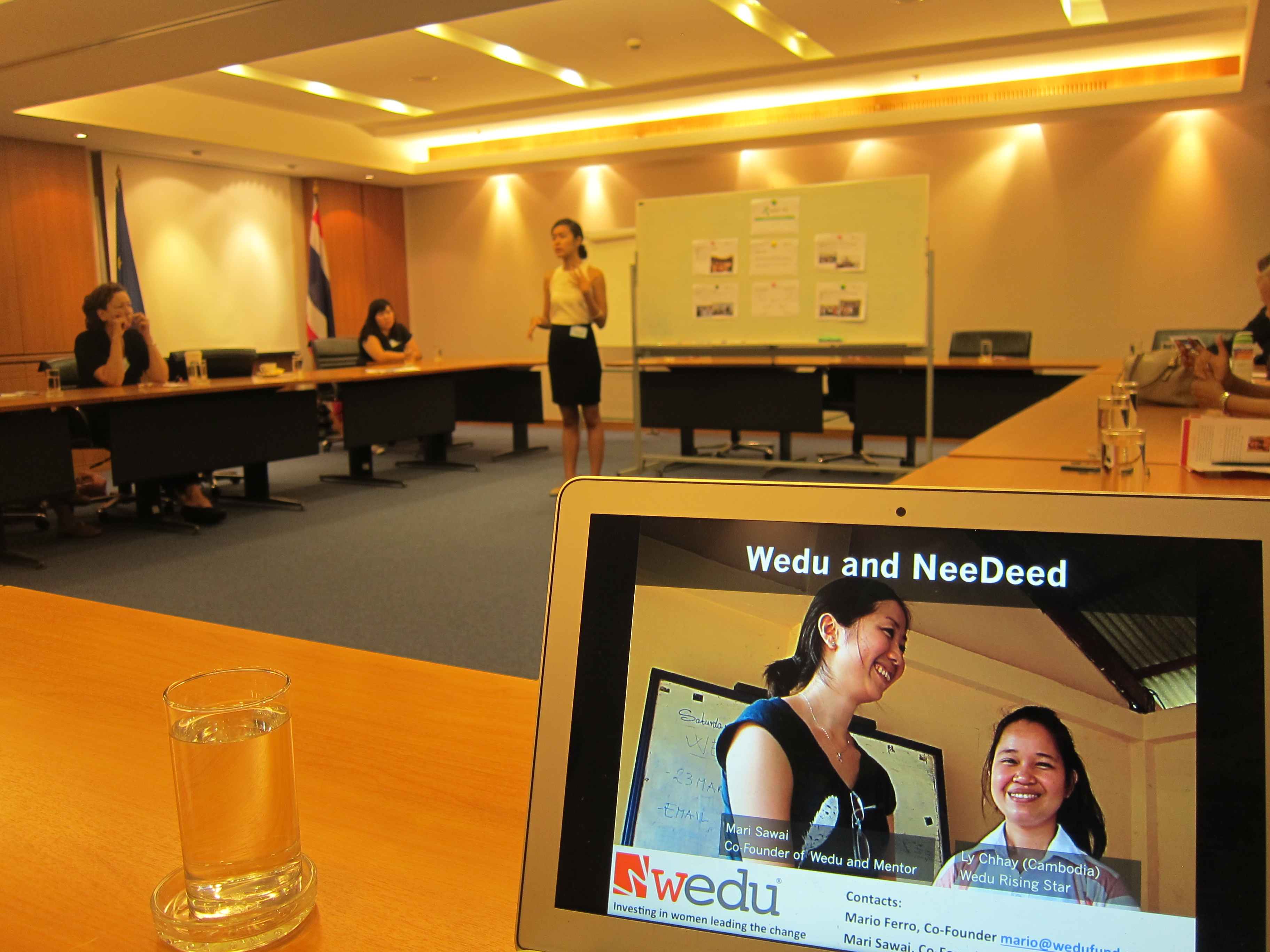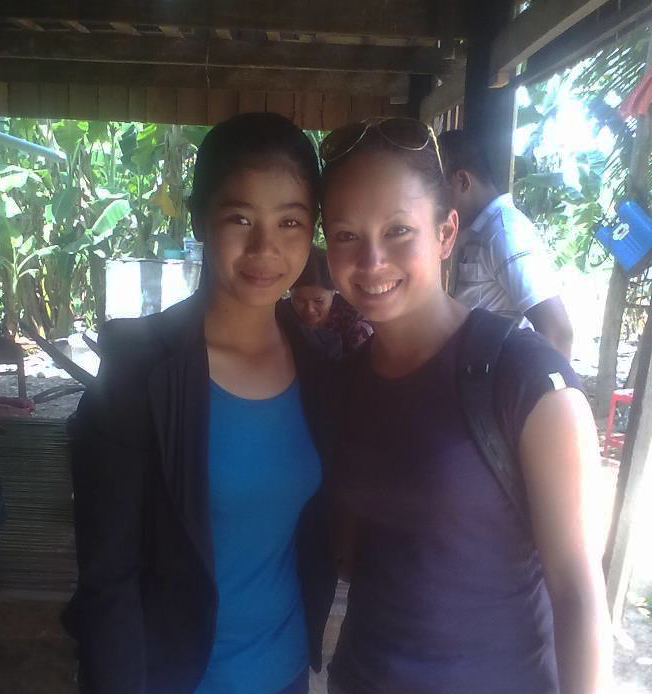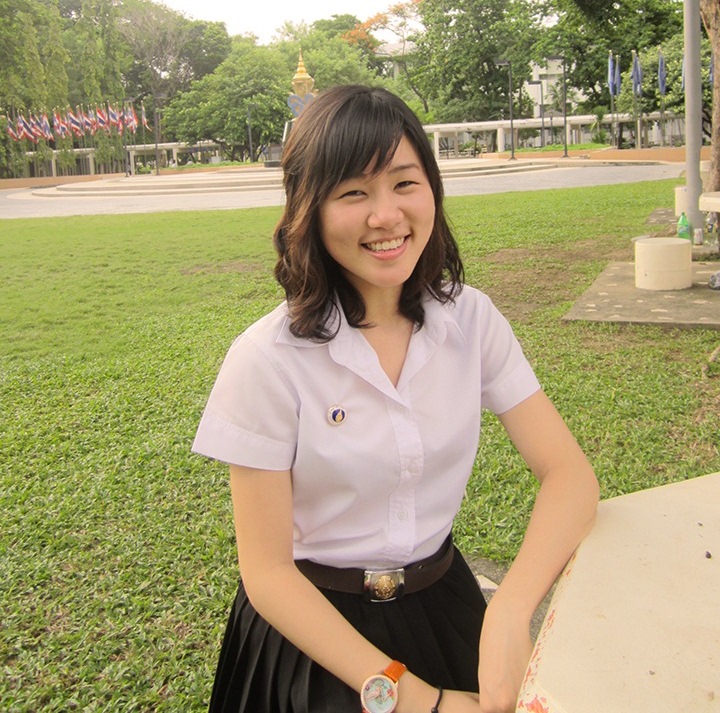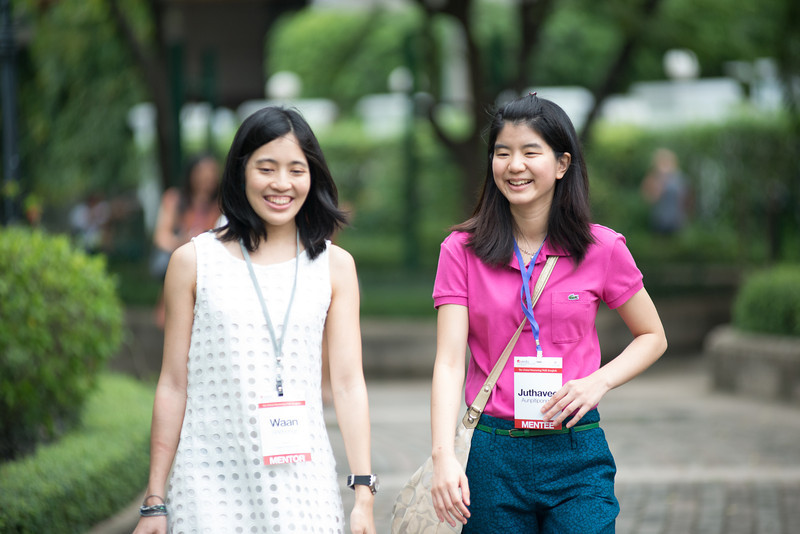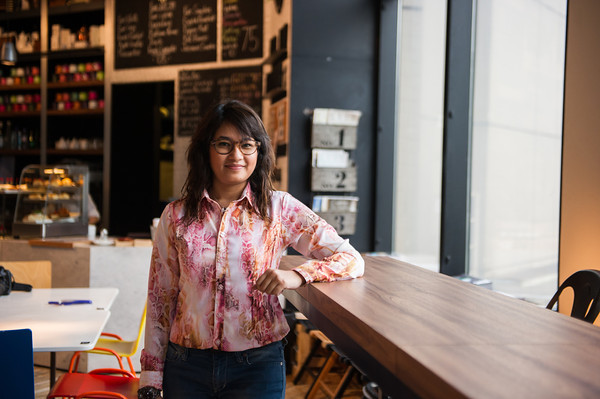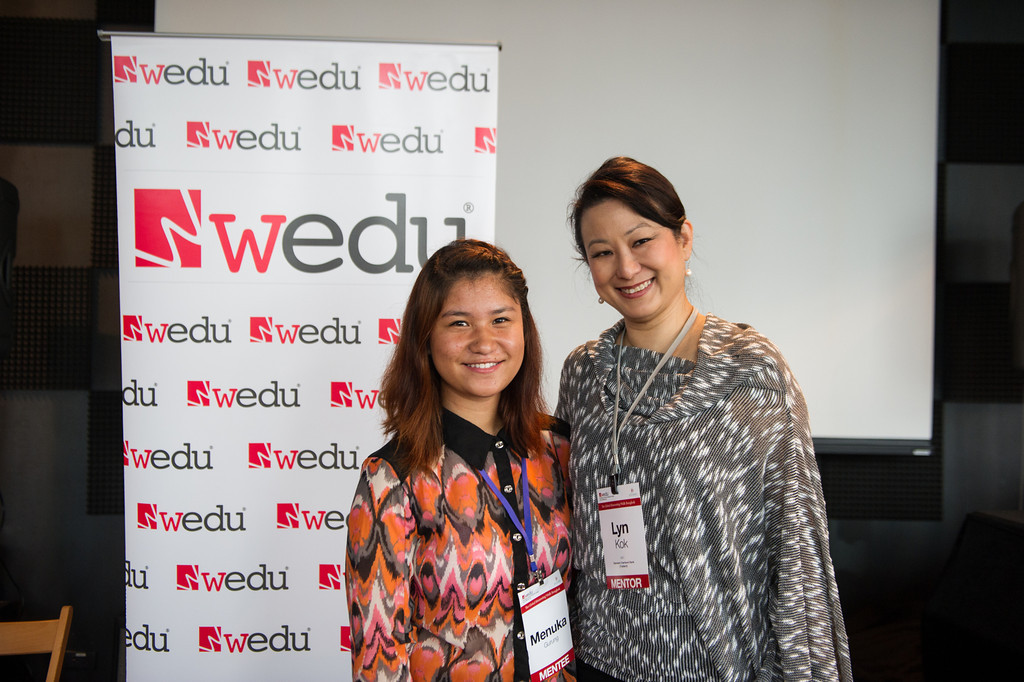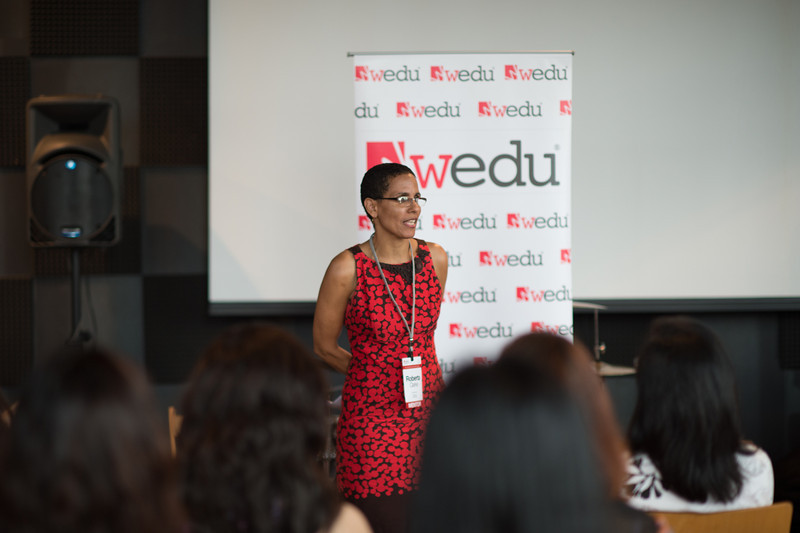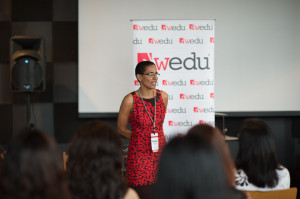Posted at 04:58h in
Mentoring Walk by admin ผู้นำหญิงร่วมเดินรณรงค์สิทธิมนุษยชนผู้หญิงฉลองวันสตรีสากลในกรุงเทพฯเพื่อแบ่งปันความท้าทายที่ผู้หญิงเอเชียต่างเผชิญ
8 มีนาคม 2557– วันนี้ ผู้หญิง 30 ท่านได้รวมตัวกันที่หอศิลปวัฒนธรรมแห่งกรุงเทพมหานครเพื่อเดินรณรงค์สิทธิมนุษยชนผู้หญิงโลก จัดโดยกองทุนWeduร่วมกับ Vital Voicesการเดินจัดขึ้นทุกปี โดยเป็นส่วนหนึ่งของขบวนการแห่งโลกขบวนการหนึ่งเพื่อเป็นแรงบันดาลใจให้รุ่นหลังผ่านคำปรึกษา ซึ่งการเดินนี้ถูกจัดขึ้นเนื่องในวันสตรีสากล และได้รับการสนับสนุนระดับโลกโดยธนาคารแห่งอเมริกา การเดินรณรงค์สิทธิมนุษยชนผู้หญิงโลกรวมตัวผู้นำหญิงที่เป็นที่ยอมรับและผู้นำหญิงใหม่เพื่อก้าวไปด้วยกันในสังคม ขณะเดิน เหล่าผู้นำหญิงต่างอภิปรายความท้าทายและความสำเร็จในการทำงานเพื่อสร้างสัมพันธ์ทางการให้ความรู้ เหตุการณ์ในกรุงเทพฯนี้เป็นหนึ่งใน 40 การเดินรณรงค์สิทธิมนุษยชนผู้หญิงที่เกิดขึ้นวันนี้ทั่วโลก ซึ่งเป็นส่วนหนึ่งของขบวนการโลกที่เน้นความสำคัญของความเป็นผู้นำของผู้หญิงและเร่งผลลัพธ์ของผู้นำหญิงผ่านการห้คำปรึกษา Weduเป็นองค์กรเพื่อสังคมที่ให้การให้คำปรึกษาที่สร้างแรงบันดาลใจและให้การสนับสนุนด้านการเงินแนวใหม่สำหรับหญิงสาวในเอเชียเพื่อสำเร็จการศึกษาในมหาวิทยาลัย ได้ริเริ่มเป็นตัวแทนประเทศไทยในการฉลองนี้ การเดินรณรงค์สิทธิมนุษยชนผู้หญิงในกรุงเทพฯนี้นำโดยผู้นำที่มีชื่อเสียงในพื้นที่ ทั้งนี้รวมถึงคุณ Roberta Clarke ผู้อำนวยการสำนักงานองค์การเพื่อสตรีแห่งสหประชาชาติ(UN Women)ประจำภูมิภาคเอเชียแปซิฟิกและ30ผู้นำหญิงจะมาร่วมกันเป็นส่วนหนึ่งของความสัมพันธ์ผ่านการให้คำปรึกษาที่พิเศษครั้งนี้ด้วย งานนี้จะมีการแบ่งปันเรื่องราวของการเดินทางของผู้หญิงสู่การเป็นผู้นำ Mario Ferro ผู้ร่วมก่อตั้งและประธานบริหารของ Wedu กล่าวว่า “การให้คำปรึกษาเป็นเครื่องมือที่มีประสิทธิภาพในการปลดปล่อยศักยภาพของผู้นำหญิงสาวโดยสร้างความมั่นใจและข่ายงานของพวกเขา ประสบการณ์เป็นแรงบันดาลใจให้กับทั้งผู้ให้คำปรึกษาและผู้ได้รับการปรึกษาด้วย Weduต้องการให้อำนาจกับหญิงสาวเพื่อให้เขากลายเป็นผู้นำเพิ่มมากขึ้น” การเดินรณรงค์สิทธิมนุษยชนผู้หญิงโลกจัดโดยกองทุน Wedu ร่วมกับ Vital Voices สร้างโอกาสให้ผู้หญิงที่ต้องการมืออาชีพมาสนับสนุนและชี้แนะว่าพวกเขาต้องบรรลุเป้าหมายที่วางไว้ เนื่องจากว่าการให้คำปรึกษาได้รับการพิสูจน์แล้วว่าเป็นหนึ่งในก้าวที่สำคัญที่สุดในการประสบความสำเร็จในหน้าที่การงาน การให้คำปรึกษาเป็นระบบสนับสนุนที่ได้ผลดีที่ช่วยฝ่าฟันอุปสรรคในการเติบโตในหน้าที่การงานที่ผู้หญิงมักจะเผชิญในสภาพแวดล้อมทั้งด้านอาชีพและบริษัทเช่นการเผชิญกับผลกระทบของ“เพดานแก้ว” และทางเลือกของข่ายงานที่จำกัดอื่นๆ ด้วยคำปรึกษาและการสนับสนุนที่ได้รับจากผู้ให้คำปรึกษา หญิงสาวทั้งหลายสามารถรับมือกับสถานการณ์อันท้าทายที่พวกเขาเจอได้ดีขึ้น การให้คำปรึกษาเป็นการมอบโอกาสพิเศษให้กับผู้หญิงที่กำลังเติบโตในการทำงานได้เร่งการเจริญเติบโตในสายงานของพวกเขา...



